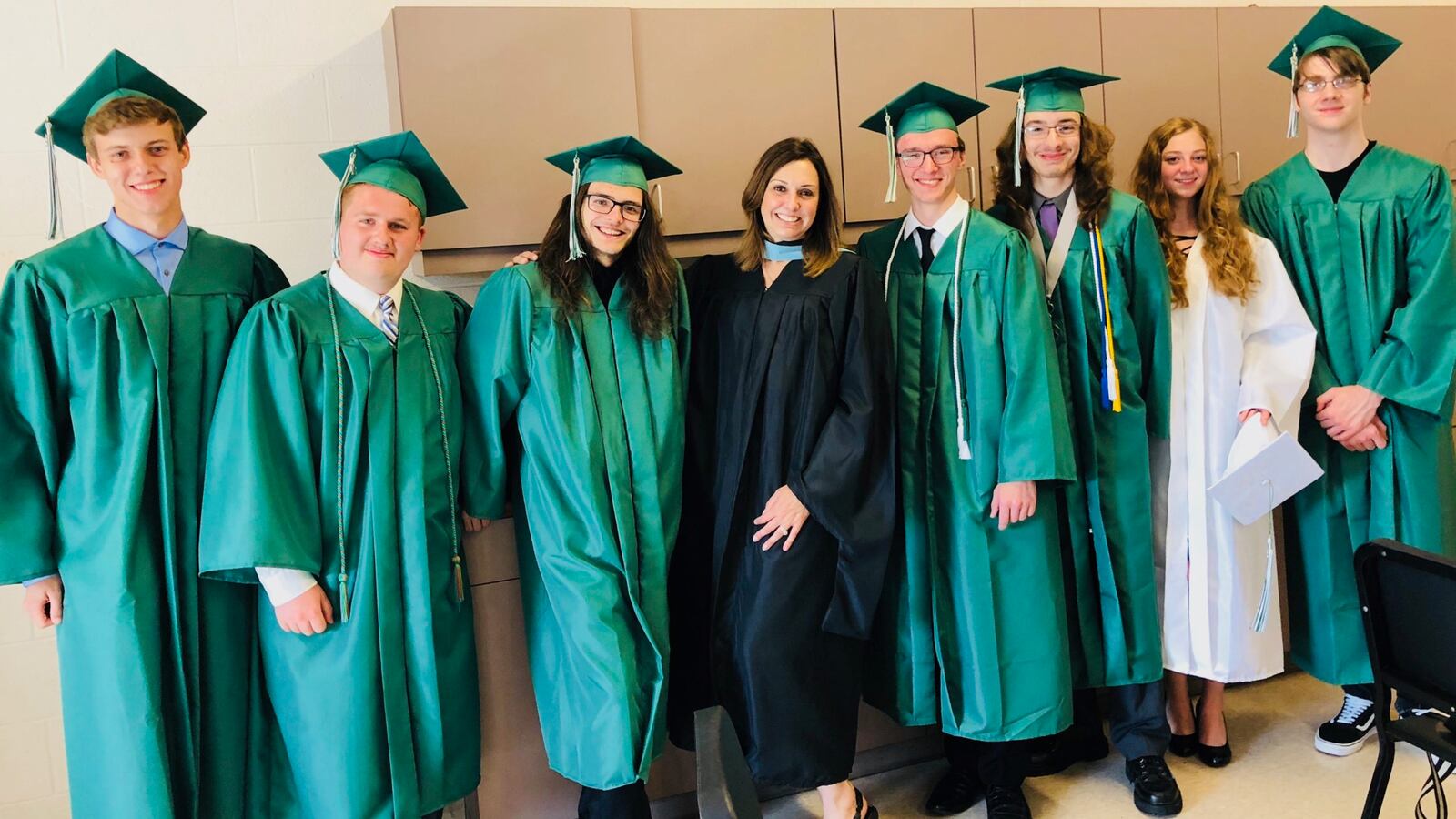Dayna Polehanki was, until recently, a high school English teacher. When she was assigned to the education committee in the Michigan Senate, she might as well have been a unicorn.
Noticing that there were no other teachers on the committee, Polehanki asked her new staff to take a closer look.
“There was a person who had taught in another state and a person who had taught in a private school,” she said. “I am the only senator with significant experience as a Michigan [public school] educator in the last 10 years years. We didn’t look farther back than that.”
To anyone who followed politics last year — state or federal — Polehanki’s story is familiar.

She is a Democrat and a woman who felt called to action by the election of Donald Trump. Someone suggested she run for office, so she did — and she won, flipping a formerly Republican district that includes the cities of Northville and Livonia.
In order to run for office, Polehanki had to leave her classroom at New Haven High School, where she taught English to 11th and 12th graders. During her 17 years as an educator, she was named the teacher of the year in the New Haven district.
With Gov. Gretchen Whitmer, a Democrat, preparing to release her proposed education budget, Polehanki is now gearing up to be a voice for teachers in debates about school policy.
We spoke with her about education funding, reaching across the aisle, and the parallels between teaching and legislating. The conversation has been condensed and lightly edited for clarity.
Why did you leave teaching for politics?
As a teacher for 20 years, I saw what education used to be in Michigan and then what happened. For the past eight or nine years years, it could not be much worse in so many areas.
We felt it a lot in teacher pay. Program cuts. Staff cuts. Teacher professional development cuts. Lots of punitive laws. The teacher evaluation law. Now the A-F law. The third grade reading law. They’re extremely punitive and not helpful. Teachers know this.
It’s not surprising to me, that having no Michigan public school teachers in the state Senate education committee in at least a decade, people might come up with laws like these because they don’t understand how it affects teachers and students.
Are there any similarities between teaching and politics?
Being a senator is not as fun as teaching. I do miss the kids. What I don’t miss is waking up that early.
I’m a new senator, so my goal right now is to make friends as much as possible with my Republican senators across the aisle so we can see what’s going on. Nothing matters if they don’t understand what I’m trying to say.
What are your priorities this year?
Everything is affected by school funding.
We have low scores. I’m wondering if we are attracting the best and the brightest teachers any more. And we overtest. It’s the punitive approach. Pound teachers until they improve their scores.
How do you lift up teachers? You give them the resources they need. You pay them what they deserve.
I’ve heard a lot of Republicans say that there have, in fact, been funding increases in recent years.
Yeah, that’s not true. When I was campaigning I would see my opponent would say they just passed the largest school funding increase in history.
I’m sitting here thinking, this can’t be. I lived this. So I began to look into it, and they’re only talking about raw dollars without inflation added.
Right. But still, winning new funding for schools isn’t going to be easy.
It’s going to be incremental. It’s not going to happen overnight.
Have you seen any evidence that there could be real change to the Michigan school funding system?
I would say the best piece of evidence is that the business community is coming on board.
Business Leaders for Michigan and the Small Business Administration are participating in Launch Michigan. It’s got the business community and the [Michigan Education Association, a teachers union] all working together to come up with funding solutions.
What teacher skills have come most in handy in the senate?
Patience, patience. That’s number one. I find that state government is a slow-moving ship. Things take more time than I’m used to.
There are teachers who are Republicans, and we all sit in the teachers’ lounge and eat together and get along.
This is my new teachers’ lounge — the Senate floor. With all these different personalities, you have to find different ways to get along and agree on things.

